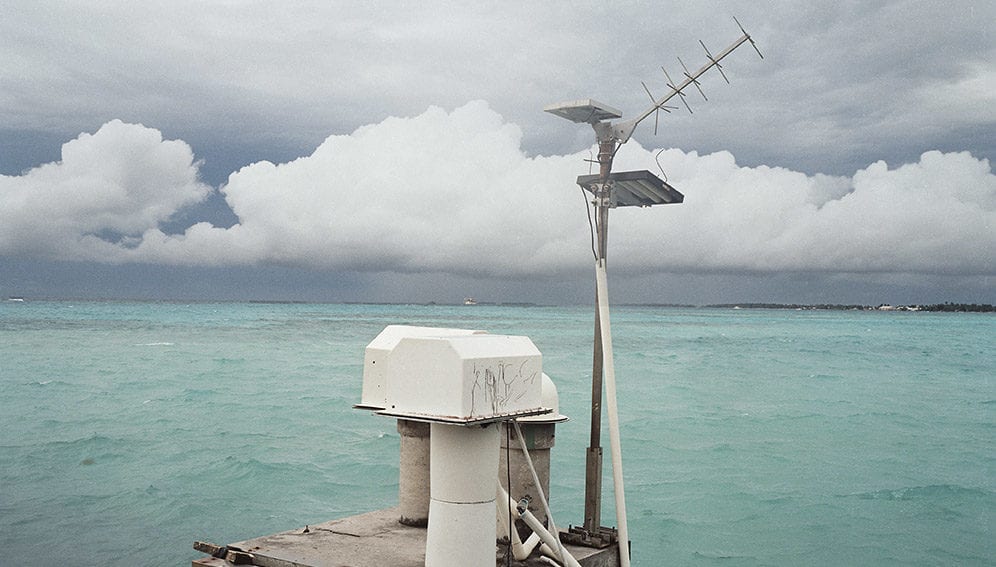By: Anita Makri
Send to a friend
The details you provide on this page will not be used to send unsolicited email, and will not be sold to a 3rd party. See privacy policy.
Scientific advances are paving the way for a rise in legal cases to enforce action on climate change, a policy forum has heard.
The IPCC’s October report on limiting global warming to 1.5 degrees is a “scientific milestone…and will be used in global litigation” to step up action, said Farhana Yamin, associate fellow at Chatham House and founder and CEO of the Track 0 initiative, at a conference in London last week (15-16 October). She told SciDev.Net that the report makes a clear link between the impacts of climate change and human activities as the cause of that change.
Yamin, a lawyer who has been involved with the UN Framework Convention on Climate Change negotiations since they began in the mid-1990s, said the report also confirms the scale of losses felt in some part of the world, based on the 1 degree of warming that has already occurred.
“This is where the attribution information can come in—to say: you’ve got a liability for things you’ve never seen before, because of climate change,”
Friederike Otto
Parallel to the IPCC process, scientific advances mean that models can now link individual weather events to climate change as the cause, said Friederike Otto, acting director of the Environmental Change institute at the University of Oxford in the UK. This is done through attribution science—much in the same way that smoking was linked to cancer decades ago—which is “very much in legal discussions at the moment”, said Otto.
Attribution science has been a game changer in the past five years, added Yamin: in the case of an event such as flooding or a heat wave, for example, “you don’t talk about a vague sense of weather any more — you can link it to anthropogenic activities that are causing long-term global change”.
Scientists can attribute an event to climate change by comparing the likelihood of it occurring today, under current conditions, to the likelihood of it occurring in a world without climate change. As things stand, this kind of attribution can happen as fast as a week after an event, Otto said. “For this summer’s heat wave [in Europe] we started on a Monday and had a press briefing on the results on Friday.
A number of legal challenges are already underway. Earlier this year, the government of Colombia was sued for fuelling climate change by failing to prevent deforestation in the Amazon. In 2015, a farmer in Pakistan filed a lawsuit against the government’s delay in implementing climate change policy to reduce vulnerabilities.
And last year, a regional court upheld a lawsuit by Peruvian farmer Raul Luciano Lliuya against energy firm RWE, Germany’s second largest electricity producer. Lliuya wants RWE to supply part of the cost of protecting his farm in Huaraz from a glacier lake, which risks overflowing from melting snow and ice.
But swift results depend on having immediate access to good data. And attribution can be done more easily for some events than others: tornadoes and hail, for example are harder to crack than heat waves, Otto told SciDev.Net.
According to Peter Stott, a climate scientist with the UK’s MET Office, estimates are more reliable when they are based on sound physical principles, consistent observational data and models that are powerful enough to replicate the event. Regionally specific analyses can be hard but are “increasingly possible”, he said.
Stott, who was part of a team that pioneered attribution science in 2013, believes that countries without enough capacity to carry out these analyses will miss out on crucial information that can help build resilience. As things stand, meteorologists in Africa are bogged down by operational demands and rely on past data to produce seasonal forecasts, he told SciDev.Net—which leaves their countries vulnerable to unfamiliar impacts.“This is where the attribution information can come in—to say: you’ve got a liability for things you’ve never seen before, because of climate change,” said Stott.














